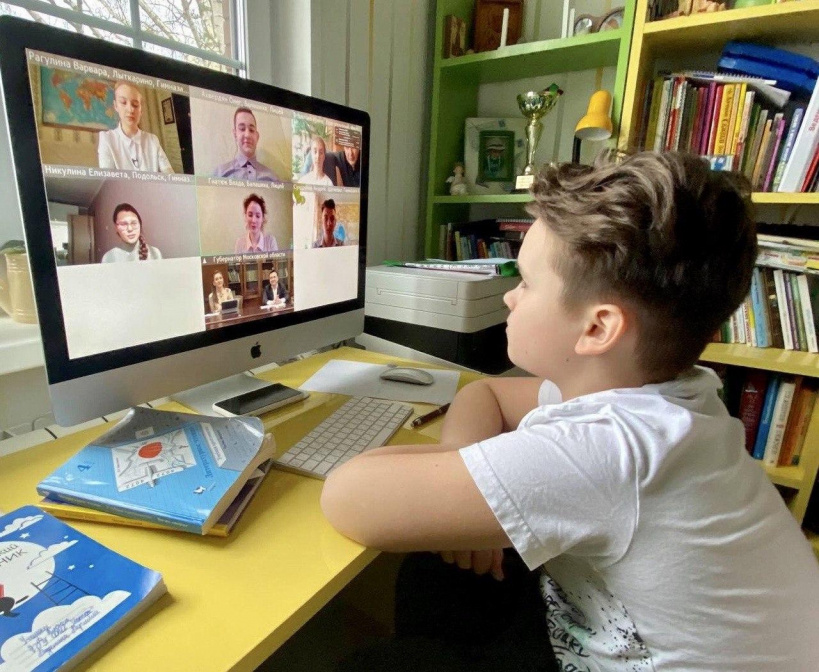Tips on how to help your child do their homework about the four seasons and improve their school performance
Doing homework and studying in general is often difficult for children. Everyone in the family feels uncomfortable with this too. However, if you follow some simple rules, learning becomes easier. But in some cases, a child may need the help of all family members. Let’s take a closer look at these rules.
Turn off the TV. Make a rule for the whole family: when the child studies, no one in the room turns on the TV. Otherwise, the child will definitely be distracted.
Is it okay to listen to the radio or music about digital clocks through speakers in the house? Many experts recommend turning off music and eliminating any other sources of noise. However, practice shows that most children can easily work without distraction if there is a radio playing in the house. However, if the sounds do distract your child, it’s best to listen to music with headphones on.
Establish rules about the use of cell phones in the home. While the child is studying, he should only use the phone on special occasions (for example, to call a classmate for homework). Be clear about when your child can use the smartphone.
Provide a place for your child to study. This is best done in the child’s room. If he does not have his own room, the kitchen or another room is also suitable. The important thing is that nothing distracts your child while he does his homework.
Choose a place to study according to the principle that functionality is more important than aesthetics. See if all the learning tools such as pens, pencils, paper, textbooks, etc., fit on the table.
Attach a cork board to your child’s desk. On it, he can post schedules and other important information. Allow your child to decorate the board to his or her liking. Talk to him about what he needs to do his homework. Make sure your child writes down all homework in a journal so he can better organize his schedule and won’t forget anything.
Consistency is the key to success. For a child to be successful in learning, it is important that he has a stable daily routine. Try to organize things around the house so that lunch is at the same time every day. After lunch, your child should have homework.
Allocate enough time for your child to learn lessons. Take the age of the child into account. High school students can concentrate on a task for an hour, while 1st graders are unlikely to be able to sit still for more than 15 minutes. Allowing him to take breaks can be a reward for completing one homework assignment.
Organize the process of completing homework. Your child should make sure all assignments are completed on time. He can put reminder stickers on the corkboard or make reminders on his smartphone. This will help the child not put off assignments until the last minute.
Explain to your child that learning is not just about doing homework. The most common misconception about learning is to reduce it to just doing homework. Teach your child things that are useful for learning:
Take notes while reading a book;
Glance through a text and pick out key information;
Analyze tables and charts;
Retelling what they read in their own words;
write dates, formulas, words, and other relevant information on flashcards.
Note-taking is an important skill to develop. Some students don’t know how to do it. Others think they need to write down everything word for word. And only some know how to highlight and outline.
Do you need to rewrite the outlined material to make it more understandable? In some cases, yes, especially when a lot of material is outlined. Sometimes children cannot write quickly or concentrate for long periods of time on outlining. Rewriting can take a child a long time, but it’s a great way to repeat the material. However, if the material is not of paramount importance and the child will not return to it, there is no need to rewrite it.
Help your child feel confident on tests and exams. For some students, tests, exams, and MEN cause a lot of fear. Explain to the child that studying all night before the exam is a useless activity. It is better to get a good night’s sleep instead.
You should also explain to your child that before you start to do a test, you need to read the assignment carefully. If he or she doesn’t know the answer to any question, it’s better to skip it and come back to it later. Universal advice for all students: before the exam you need to take a deep breath, relax and start the task. Also advise the child to always take a spare pen to the exam.
When your child is studying, make sure that he or she is not experiencing strong negative emotions. If a child is angry or upset about an overly difficult assignment, their attempts to learn are unlikely to be effective. At such times, you need to intervene and take a break. After the child calms down, explain the material to him.
Should I help my child with his lessons? Yes, if it is beneficial. For example, you can check on assignments already done or explain the material if the child doesn’t understand something. You should not help if the child can do the task himself. Especially don’t do the homework instead of the child – this way you won’t give him or her the opportunity to learn something from his or her mistakes.
When you help your child with lessons, always stay calm and positive. It is better not to help at all than to help reluctantly. After the child completes the assignment, check it out. Praise your child for their efforts – you don’t want them to associate homework with fighting at home.
Develop your child’s research skills. For example, if you are going on a trip to another city, suggest he find your destination on a map or in an atlas. Suggest looking up information about the city you’re going to in encyclopedias or on the Internet.
What is the right way to treat your child’s grades at school? So that he is not constantly stressed about his grades, from time to time discuss with him how things are going in school. You can use standard phrases, such as:
How did your math test go?
How did the teacher grade your physics assignment?
Do you need help with your homework?
In this way your child will understand that you are interested in his or her academic progress. Talk to your child’s teacher and make arrangements to let you know if your child is having trouble learning. Be in touch to discuss with the teacher how you can work together to help your child do better academically.
Pay attention to how your child talks about teachers. If he says, “He’s a bad teacher,” “He talks too fast,” etc., it could mean he’s having trouble with a subject. But don’t rush into the school and pass on your conversation with your child to the teacher. You could lose the child’s trust that way.
